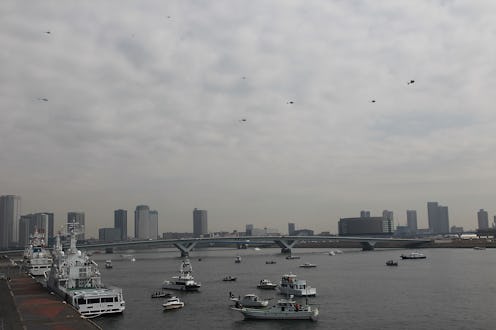News
Japan: Eh, We'll Resume Illegal Whaling, Whatever
A government official announced Friday that Japan will resume its whaling program in the Southern Ocean off Antarctica in 2015, a highly-controversial move sure to stoke the passions of animals-rights activists worldwide. The 2014 whale hunts had been cancelled following a ruling by the International Court of Justice in The Hague that Japan's actions were in violation of a treaty banning commercial whaling internationally.
Japan has long maintained that their whaling is done for scientific research, a claim which has been disputed and disparaged by many critics.
In order to relaunch the hunts, they'll have to submit a new plan detailing their intended research to the International Whaling Commission. To what extent Japan is being truthful and transparent about their motivation is a big, sore subject in all this. The aforementioned ruling at The Hague suggested that the program may not be for research at all — rather, that it may be a cynical ploy to allow Japan to continue commercial whale hunts, which were meant to be banned outright in 1986, as a means to combat their dwindling populations.
In recent years, Japan has become a focal point for activists concerned with the treatment of cetaceans — that's whales, dolphins, and porpoises, to be clear. The harrowing, Oscar-winning 2009 documentary The Cove played a big part in this, bringing to international attention the annual, brutal dolphin slaughters that take place in an off-limits inlet in Taiji, Japan.
Even within in the realm of animal rights activism, which would likely frown on, say, killing and eating a cow, the plight of the cetacean has a unique significance — many such species demonstrate forms of notably advanced intelligence.
For Japanese proponents of whaling, the potential suffering of these creatures isn't something that seems to be taken very seriously. Case in point: Thursday's opulent "whale buffet," where hundreds of pro-whaling Japanese lawmakers and officials wolfed down a wide array of whale dishes, along with a celebratory toast of "whale!"
Which, it almost goes without saying, is a very different sort of image than what you'd expect from people also trying to convince the international community that their whaling is all about the science. As the ruling canceling the 2014 hunt noted, the research program has yielded few scientific results in a full 26 years of operation. Whew.
